If a baby is wheezing, what can it be? And what should be done about it?
The wheezing baby in this Q&A is only 2 months old.
Mom’s Question:
I have an 8 weeks old wheezing baby, and I’m worried. She has been chesty ever since she was born. I have been to the doctor, but nothing has cleared it. Please help!
Karen (South Africa)
Possible Reasons For Wheezing Baby
While normal baby breathing may sound strange to your ear sometimes and be interpreted as wheezing, airway blockage due to infection may also be causing these sounds.
The blockage may be on any level, from the nostrils to the larynx to the bronchi, and the sound would be different for each one. The doctor will certainly be able to differentiate normal breathing from persistent colds or bronchitis.
Wheezing is generally produced when a part of the respiratory airway is narrowed or obstructed.
Wheezing in babies can be caused by different health conditions. Here are a few possibilities, but I would recommend reading this article about gasping in babies, as it includes several additional possible reasons that could be relevant for your baby too.
Tracheomalacia
One reason, if it is a raspy sound, could be an uncommon condition called tracheomalacia, in which the tissues of the trachea are soft and flexible, causing tracheal collapse. The collapse of the trachea produces airflow obstruction and wheezing. Tracheomalacia is usually a benign condition and does not need any treatment. In most cases, the symptoms disappear by 3 years of age, but a doctor needs to make the diagnosis.
Viral or bacterial infections
The obstruction of respiratory airways in babies may also be caused by viral or bacterial infections. Wheezing caused by infections is preceded by an incubation period of 2 to 5 days. During this period, the baby is not feeding well and has a fever. In general, infections are self-limited and resolve within 3 to 5 days. The most important thing is that you keep your baby well-hydrated. However, if you observe nasal flaring, abnormal movements of the thorax, or if your baby is grunting, does not want to feed, or has more than 60 breaths per minute, it is recommended that a doctor examines your baby.
Asthma
Asthma in babies can also cause wheezing. In this case, the wheezing can also be accompanied by coughing (especially at night), a tight chest, or trouble breathing. Asthma can be anything from minor to severe and should be assessed by a doctor if suspected.
How to know if a wheezing baby is ill?
Heavy breathing, wheezing, etc., doesn’t have to be a reason to worry about unless it is accompanied by other symptoms such as fever or fast breathing rate. If your baby has one of these symptoms, or he/she is not feeding well or has low energy levels, a pediatrician should examine your baby.
The video below is very useful for assessing a baby’s breathing.
In any case, even if it turns out to only be a cold that will be resolved by itself, I think you should contact another pediatrician for a second opinion.
I hope your baby s better soon and that this information helps you with your next step.
Paula
(Answer approved by our Medical Reference Team)
More Q&As On Babies With Heavy Breathing
- How To Help Wheezing, Coughing Baby?
- What Home Remedies For Baby With Cough?
- Baby Gasps When Laid Down: 12 Important Reasons to Assess
Research References
Find comments below.

Paula Dennholt founded Easy Baby Life in 2006 and has been a passionate parenting and pregnancy writer since then. Her parenting approach and writing are based on studies in cognitive-behavioral models and therapy for children and her experience as a mother and stepmother. Life as a parent has convinced her of how crucial it is to put relationships before rules. She strongly believes in positive parenting and a science-based approach.
Paula cooperates with a team of pediatricians who assist in reviewing and writing articles.

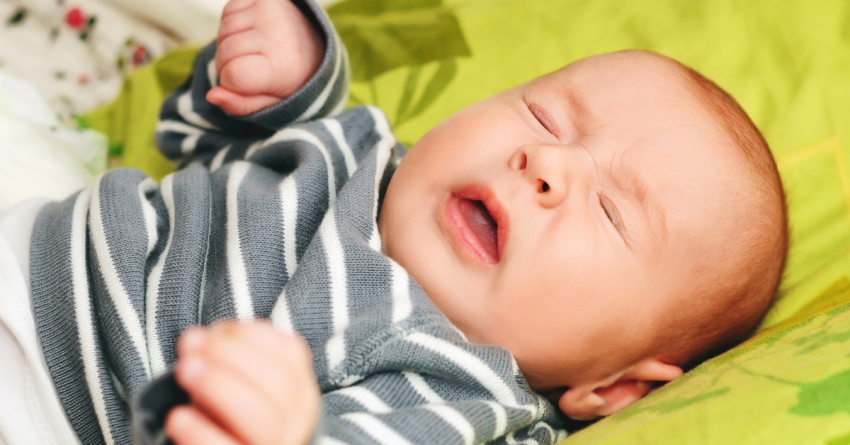
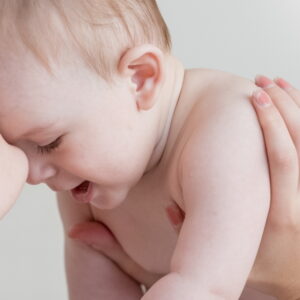
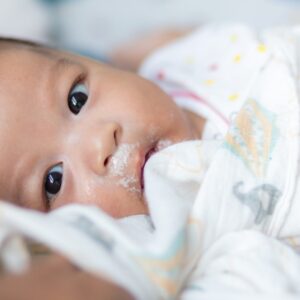
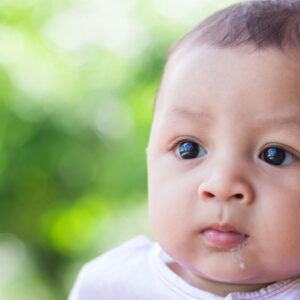
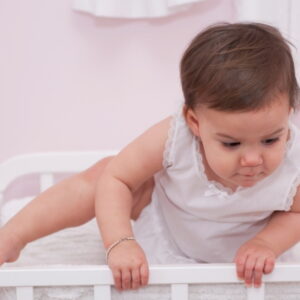

I have a 3-month-old daughter, and she now has this rattle on her chest every now and again when she breathes. Our family has a family doctor we attend, and I told her about it. She said no doctor could recommend anything for an infant because it can even be an allergy or something, so she said to ease up off of formula milk and give her lots of breastmilk, and it helped.
I wish the best for any other mother in my situation. Try it for your baby. Wish you luck!
It could also be you need to do more winding